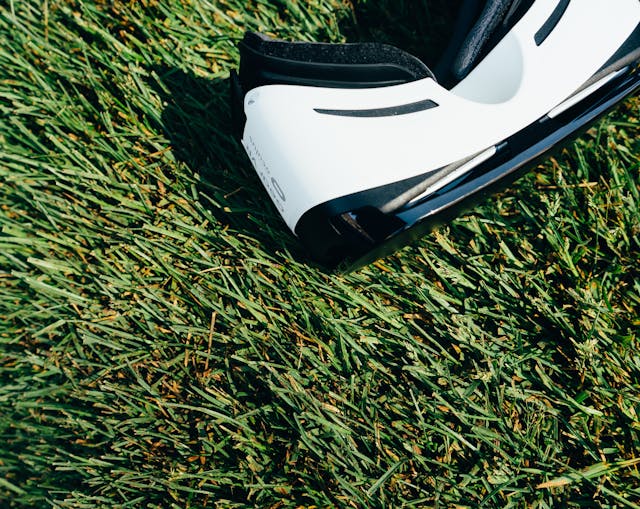Experiencing nature — even through a virtual environment — can significantly improve emotional well-being and enhance quality of life for older adults living with dementia. This is the key finding of a recent pilot study led by Junhyoung “Paul” Kim, a health technology researcher in the Department of Health Behavior at the Texas A&M University School of Public Health. The research also examined the practical challenges these individuals face when using virtual reality (VR) for the first time, providing valuable insights into how immersive technology can be tailored for this population.
Published in the American Journal of Health Behavior, the study involved 11 residents of a long-term memory care facility who had been diagnosed with mild to moderate Alzheimer’s disease. Over five weeks, participants engaged in twice-weekly VR sessions lasting 20 to 30 minutes. Using Oculus Quest 2 headsets and the Nature Treks Virtual Reality application, they were immersed in tranquil landscapes such as forests, meadows, ocean views, and glowing sunsets, with opportunities to interact with animated plants and animals.
Kim highlighted that while the benefits of nature-based activities for people with dementia are well established, many face serious barriers to accessing outdoor experiences. Factors such as limited mobility, environmental hazards, and safety concerns often prevent participation in real-world programmes. The VR intervention provided a safe, adaptable alternative, allowing residents to explore diverse natural environments in a way that was both personalised and meaningful, without leaving the security of their care facility.
The research team employed a pretest-posttest design to measure changes in emotional well-being and perceived quality of life. Results indicated a marked increase in feelings of pleasure and alertness, alongside reductions in negative emotions including anxiety, sadness, and anger. Many participants also reported a greater sense of overall life satisfaction after completing the sessions, reinforcing the therapeutic potential of immersive experiences for those with cognitive impairments.
To complement these findings, in-depth interviews were conducted with participants and their caregivers during the final week of the study. Three central themes emerged: the joy of exploring virtual natural spaces, the novelty and excitement of the VR experience, and the way it evoked fond memories and reminiscence. However, the research also uncovered usability challenges, with some participants struggling with headset fit or finding the handheld controllers difficult to manage. The team suggested that simplifying controls and improving ergonomic design could enhance accessibility for older users.
Despite these technical barriers, Kim and his colleagues see strong promise in integrating VR into dementia care. They believe that immersive technology can reduce emotional distress, foster engagement, and offer enriching experiences to those whose physical limitations restrict real-world activities. As the number of Americans living with Alzheimer’s disease — now over seven million — continues to rise, such innovations could become an important tool in expanding the scope and quality of care available to this growing population.
More information: Junhyoung Kim et al, The Effects of a Nature-based Virtual Reality Program on Emotional Health and Quality of Life among Older Adults with Dementia, American Journal of Health Behavior. DOI: 10.5993/AJHB.47.1.1
Journal information: American Journal of Health Behavior Provided by Texas A&M University








